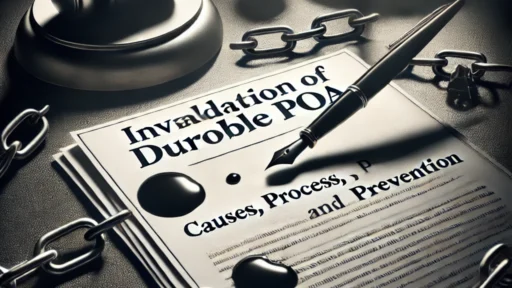Renting an apartment often means proving you’re reliable before you ever sign a lease. A notarized letter can help make your case—or help landlords verify what tenants are claiming.
A notary public stamps and signs these documents, adding official verification that the person signing is who they claim to be and that they signed willingly. For rental applications, this extra step can settle questions about income, rental history, or lease terms before anyone wastes time on a deal that won’t work out.
Whether you’re applying for an apartment or screening tenants, understanding when and how to use notarized letters can save you from miscommunication and disputes down the road.
Understanding a Notarized Letter for an Apartment
A notarized letter is simply a document that a notary public has witnessed and verified. The notary confirms the signer’s identity and watches them sign, then adds their official seal and signature.
Importance of a Notarized Letter
The notary acts as a neutral witness. They’re not vouching for whether what you wrote is true—they’re just confirming that you are who you say you are, and that you signed the document willingly and knowingly.
For tenants, a notarized income verification letter removes doubt about financial stability. Instead of just claiming you make $60,000 a year, you’re presenting documented proof that you swore to in front of an official witness.
For landlords, notarized letters help verify claims that would otherwise be hard to confirm. When someone says they left their last apartment on good terms, a notarized letter from that previous landlord carries more weight than a verbal reference.
Situations that Call for a Notarized Letter
Not every rental situation requires notarization, but certain scenarios call for it:
Income verification helps when your pay structure is unusual—freelancers, contractors, or people with multiple income sources benefit from having their claims officially documented.
Rental history confirmation matters when you’re moving from another state or your previous landlord is hard to reach. A notarized letter can substitute for a phone reference.
Lease termination agreements protect both parties when ending a lease early. Getting the terms in writing and notarized prevents he-said-she-said arguments later about security deposits, move-out dates, or who agreed to what.
Co-signer or guarantor letters often need notarization so landlords know the guarantee is legitimate and the person understands they’re legally responsible for the rent.
Detailed Breakdown of a Notarized Letter
Exploring the anatomy of a notarized letter plays a pivotal role in understanding its value in the rental process. This segment deconstructs the components that constitute a notarized letter and highlights common pitfalls to sidestep.
Key Elements in a Notarized Letter for an Apartment
What Goes in a Notarized Letter
A proper notarized letter has specific parts. Missing any of them can make the whole thing useless.
Required Elements
Your information goes at the top—full legal name, current address, phone number, and email. Use the name that matches your ID.
Recipient information includes the landlord’s or property manager’s name and the property address. Be specific about who should receive this.
The actual content forms the body of the letter. State clearly what you’re verifying: “I, [Your Name], earned $65,000 in gross income during 2024” or “I, [Landlord Name], confirm that [Tenant Name] rented from me at [Address] from January 2023 to December 2024.”
The notary section is where the notary public adds their information, seal, and signature. Leave this blank—the notary fills it out when you meet with them.
Your signature and date go at the bottom, but don’t sign it before meeting the notary. They need to watch you sign.
Mistakes That Invalidate Letters
Signing before you meet the notary defeats the whole purpose. The notary has to witness your signature.
Vague statements like “I make good money” or “they were decent tenants” don’t help anyone. Use specific dates, dollar amounts, and addresses.
Wrong names cause problems. If your ID says “Michael” but you sign as “Mike,” that’s a mismatch. Use your legal name.
Missing information about the property address or time periods leaves room for confusion. Be exact.
Alterations after notarization make the document invalid. If you need to change something, start over with a new letter.
Getting Your Letter Notarized
The process is straightforward once you know what to expect.
Finding a Notary Public
Banks often have notaries available for customers, sometimes for free. Credit unions do too.
UPS stores and FedEx Office locations offer notary services, usually for $5-15 per signature.
Law offices, real estate offices, and insurance agencies typically have notaries on staff.
Online notary services let you get documents notarized via video call, which is legal in most states now. This works well if you can’t easily get to a notary in person.
Your local library or city hall might offer free or low-cost notary services during certain hours.
What to Bring to Your Appointment
You need three things: your unsigned letter, a valid government-issued photo ID, and payment.
The letter should be completely filled out except for your signature and date. Don’t leave blanks that you plan to fill in later—that raises red flags.
Your ID must match the name on the letter. A driver’s license, passport, or state ID card all work. The photo needs to look reasonably current.
Most notaries charge $5-20 per signature, though some banks do it free for account holders. Call ahead to ask about the fee and what payment methods they accept.
Some notaries want you to make an appointment. Others work on a walk-in basis. Check their hours and policies before showing up.
Why Landlords Want These Letters
Landlords deal with risk every time they hand over keys. Notarized letters help them verify claims before committing.
Income verification matters most. Someone can easily forge a pay stub or create a fake employment letter. A notarized statement means the person swore to its accuracy in front of a witness, which makes lying much riskier legally.
Previous rental history tells landlords whether you paid on time, took care of the property, and left on good terms. A notarized letter from a previous landlord carries more weight than an unverified reference because that landlord is putting their reputation on the line officially.
Lease termination documents prevent disputes when someone moves out early. Both parties sign off on the terms—security deposit return, final rent payment, move-out inspection results—and the notarization makes it harder for either side to later claim they agreed to something different.
From a landlord’s perspective, these letters filter out people who aren’t serious or who are hiding problems. Someone willing to get documents notarized is usually being honest about their situation.
Why Tenants Should Use These Letters
If you’re competing for an apartment in a tight market, a notarized letter sets you apart.
Standing out from other applicants matters when ten people apply for the same unit. Two applicants with similar credit scores and income? The one who brought notarized proof of employment and a letter from their previous landlord probably gets the lease.
Validating unusual income helps freelancers, gig workers, and people with seasonal employment. Bank statements show deposits, but a notarized letter explaining your income sources and amounts makes it easier for a landlord to say yes.
Protecting yourself in disputes becomes important if things go wrong. A notarized move-out agreement that specifies the condition you left the place in can save you from bogus damage claims later.
The small cost and effort of notarization is usually worth the credibility boost and legal protection it provides.
Legal Weight of Notarized Letters
Notarization adds legal heft to a document, but it’s not bulletproof.
What Protection You Get
A notarized document proves someone signed it willingly and confirmed the contents. If a dispute ends up in court, the notarization makes it much harder for someone to claim they didn’t sign it or didn’t understand what they were agreeing to.
For lease agreements, notarization helps enforce the terms. Both parties acknowledged the agreement in front of a witness, which strengthens its validity.
Income verification letters become stronger evidence if there’s ever a question about whether someone misrepresented their finances.
Where Notarization Falls Short
Notaries don’t verify if what you wrote is true—they only confirm your identity and that you signed. You could get a notarized letter claiming you earn $200,000 a year when you actually make $40,000. The notarization just proves you signed it, not that the content is accurate.
Local laws trump what’s in your document. A notarized lease clause that violates tenant protection laws in your city is still unenforceable, no matter how official it looks.
Bad information stays bad even after notarization. If you accidentally put the wrong dates or address in your letter, the notary stamp doesn’t fix that mistake.
Only certified notaries count. If someone who’s not actually a licensed notary public stamps your document, it’s worthless. Make sure you’re working with a legitimate notary—ask to see their commission certificate if you’re unsure.
Notarization timing matters. An expired notary commission or a document notarized after someone claims they signed it can both cause problems in court.
Discover the Power of BlueNotary:
Integrate your Business, Title Company, or Law Firm to Satisfy your Customers and Decrease TurnaroundGet a document Notarized/Sign-upJoin the Free Notary Training Facebook Group
Bottom Line
Notarized letters add credibility to the rental process by providing official verification of claims that would otherwise be difficult to confirm. They protect both landlords and tenants by creating a clear, documented record of agreements and facts.
The process of getting a letter notarized is simple and inexpensive—usually under $20 and less than 15 minutes of your time. For tenants in competitive rental markets or landlords dealing with high-value properties, that small investment can prevent much larger headaches.
Just remember that notarization verifies who signed a document, not whether what’s written is true. Use these letters alongside other verification methods like credit checks, employment verification calls, and property inspections. They’re one tool in the process, not a replacement for due diligence.
Frequently Asked Notarized Income Potential Letter Questions
Do I have to get my rental application documents notarized?
Usually no. Most landlords don’t require notarization for standard applications. They typically only ask for notarized letters in specific situations—when you’re self-employed and need to verify income, when you’re moving from far away and previous landlords are hard to reach, or when you’re breaking a lease early and want clear documentation. If a landlord specifically requests notarization, then yes, you need it.
How much does notarization cost?
Expect to pay $5-20 per signature, depending on where you go and what state you’re in. Some states cap notary fees—California limits it to $15 per signature, while other states allow notaries to charge more. Banks often notarize documents free for their customers. Online notary services usually charge $25-50 but offer convenience if you can’t get to a notary in person.
Can I notarize a document online?
Yes, most states now allow remote online notarization (RON). You connect with a notary via video call, show your ID to the camera, and sign the document electronically while they watch. The notary then applies their digital seal. It’s legally equivalent to in-person notarization in states that allow it. Check your state’s rules or ask your landlord if they accept online notarization.
What if I made a mistake after the letter was notarized?
You can’t fix it. Any changes to a notarized document after the notary seal is applied invalidate the notarization. You’ll need to create a new letter with the correct information and get it notarized again. This is why it’s crucial to proofread everything carefully before your notary appointment.
Will a notarized letter guarantee my rental application gets approved?
No. Notarization just verifies that you signed the document and that you are who you claim to be. Landlords still evaluate your credit score, income level, rental history, and other factors. A notarized letter can strengthen your application by showing you’re serious and organized, but it doesn’t override other red flags like poor credit or insufficient income.
Do landlords need to notarize their letters to tenants?
Not usually, but it helps in certain situations. If a landlord is writing a rental reference letter for a former tenant, notarizing it adds credibility. For lease termination agreements, having both parties’ signatures notarized protects everyone. For routine communications like lease renewal offers or maintenance notices, notarization isn’t necessary or expected.








